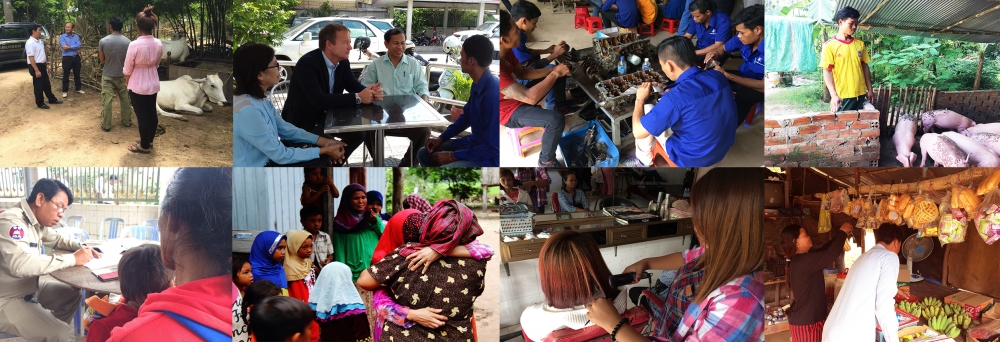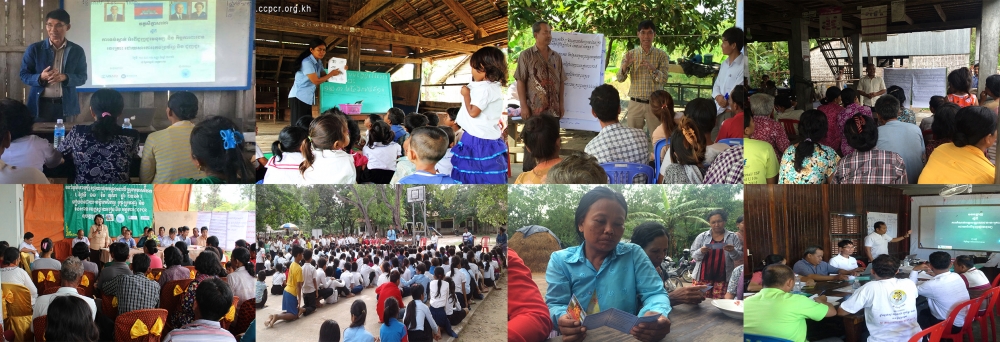CTIP Secures the Second Chance at Education for 22 Trafficked Children Forced to Beg in Vietnam
33 Cambodians, including 22 trafficked children, were repatriated from Vietnam by the Cambodian Center for the Protection of Children’s Rights (CCPCR), a partner of USAID’s Cambodia Countering Trafficking in Persons (CTIP) on the 8th July. The children had been forced to beg on the streets of Vietnam by their traffickers, sleeping on the streets without enough food, and were beaten if they did not earn enough money or hand over their earnings.
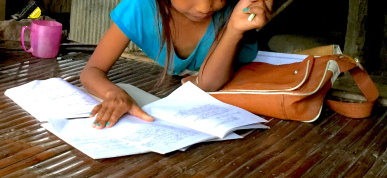
CTIP is reintegrating these children back into their communities in collaboration with local authorities and NGOs by conducting family assessments and follow-up visits to ensure the children are safe and cared for.
With the support of CTIP, the 10 school-aged children will be able to return to school with books, uniforms and bicycles after the school holidays. The other children, still too young to begin school, will be supported in their families until they are ready to begin. With CTIP support, these children have a second chance for education.
22 Cambodian children trafficked and forced to beg on the streets of Vietnam have a second chance to pursue their education and live safe lives in their communities.
Importantly, CTIP will work with the children’s families by providing basic short-term provisions and assisting them with job placements and vocational trainings to ensure a stable source of income for the family. “I left school because my family is very poor, I wanted to have a bicycle to take my younger sister with me to go to school but my parents have no money and I could not afford it,” said one girl studying in Grade three. Addressing these underlying issues keeps the children in school in the long-term and decreases the vulnerability of children and other family members from migrating unsafely and being trafficked or re-trafficked in the future.
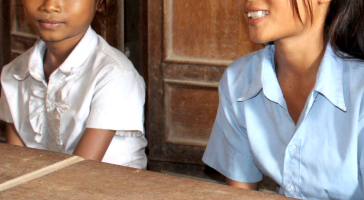
Winrock International Protection and Reintegration Specialist Un Vuthy visited seven of the children in their communities where they have returned to school. He met with the school directors who asked that teachers are trained on trafficking, child labor and migration to bring prevention directly to the classroom. “Teachers are like second parents of children, especially for reintegrated children who have returned to school,” said Mr. Un.
So far in 2016 CTIP has repatriated 32 children trafficked to Vietnam. Over the four-year program CTIP aims to provide support services to 2,000 trafficking survivors and deliver alternative livelihood assistance to 32,000 individuals vulnerable to trafficking.
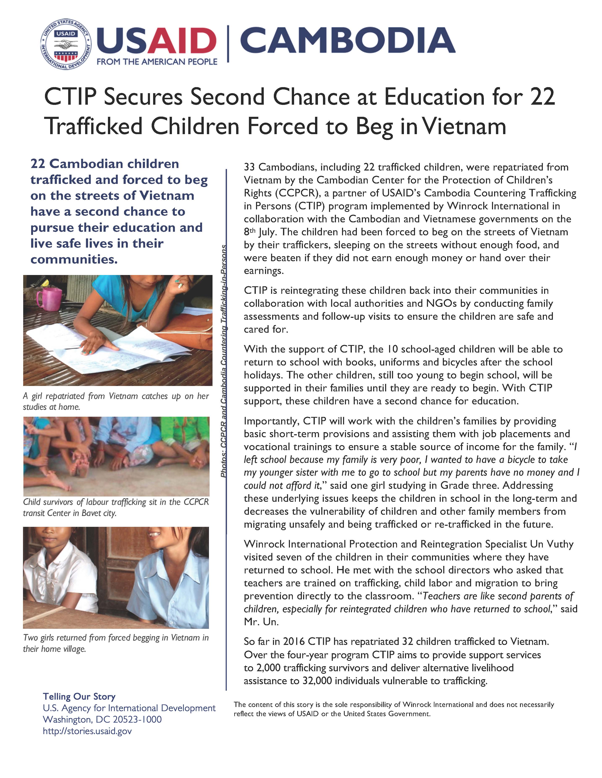
Activities
- Child Pursues Education, After CTIP Supports on Business to Family
- Vulnerable People sharing Experienced on Benefit of Raising Chicken
- Helping Vulnerable Families Improve their Lives
- Trafficking Survivor Sharing Experience of migration
- My Dream Came True as a Barber
- Former Trafficked Victim Got supported to Improve Livelihood
- Livelihood Supported to Pursue Hope
- âMy Dream Come True with Hair Dressing and Salon Businessâ
- Rice Bank Met the Need of People to Stop Risky Migration
- Pig Raising to Improve livelihood of Survivors
- "Cows Bank", is the Resource of Sustainable Livelihood
- We Together to End Human Trafficking
- From Miserable Life to Get a Skill of Hairdressing
- SVG Trained Beneficiary to Be Sustainable Farmer
- Local Leaders Share Lessons Learned and Plan for Sustainable Anti-Trafficking Efforts
- Successful Collaboration to Return 33 victims from Vietnam
- Survivors of Labor Trafficking Receive Support to Pursue Safe and Sustainable Income Sources
- CCPCR Conducts a Chicken and Pig Raising Training for Capacity Building
- 23 Labor Trafficking Victims Were Back to Community Successfully
- Chinese Guests Visited CCPCR to Hear Experience of working with Human Trafficking Victims
- AOI's Students Visited Child Prevention Project
- Collaborative Effort Leads to Successful Repatriation of 54 Cambodian Men Trafficked to Fishing Boats
- Risky Migrationâ Lead to Trafficking Issues
- Livelihood Training Workshop on Chicken and Pig raising to Victims and Victims'family
- 15 Survivors Returnedâ back to Community With New Life
- 4 victims of human trafficking from Vietnam, Returned Back Successfully
- Eleven Trafficked Children to Beg in Vietnam, Returned to Cambodia
- CTIP Secures the Second Chance at Education for 22 Trafficked Children Forced to Beg in Vietnam
- National Verification Process in Thailand
- Press on After Trafficking Launch
- Angkor Wat Bike4Kids! Event
- Radio Australia Broadcast
- Featured in Global South Development Magazine
- A major fundraising campaign for CCPCR!
- CCPCR's Christmas party!
- Painting in Phnom Penh!
- Sihanoukville Shelter - Can you help?
- Lotus House - Siem Reap
Download Document
- Local Leaders Share Lessons Learned and Plan for Sustainable Anti-Trafficking Efforts
- Successful Collaboration to Return 33 victims from Vietnam
- 2015 Annual Report
- Snapshot-Forum Empowers Human Trafficking Survivors to Make Recommendations to Policymakers and NGOs
- Snapshot-Survivors of Labor Trafficking Receive Support to Pursue Safe and Sustainable Income Source
- CCPCRâs Prevention Activities for October
- CCPCR CSO Certificate certified and approved by Minister of Ministry of Social Affair
- Case study - IOM training on representatives of 14 child clubs
- 2014 Annual Report
- Case study - Child Club in Thmei commune
- Case Study - Teng Mao Community
- Case Study - Training on pig farming in Thnout commune
- Case Study - Community Learning Centre in Chres commune
- Case Study - Parental Group in Tuol Ampal village
- Case Study - Child Club in Kandal Village in Thnout
- More than just victims- the truth about human-trafficking
- What are you grateful for?
- Shelter Appeal
- CCPCR's Rehabilitation strategy
- Organizational Chart
- CCPCR's Child Protection Policy
- Human-trafficking in Cambodia
- Human Trafficking FAQ's
- Statement for human rights day, December 10, 2014.
- Current situation on process to migrate to Thailand in EN
- Current situation on process to migrate to Thailand in Kh
- 2013 Annual Report
- 2012 Annual Report
- Svay Rieng Shelter
- 2011 Annual Report
- 2010 Annual Report
- Svay Rieng Presentation 2010
- CCPCR's Rehabilitation strategy


